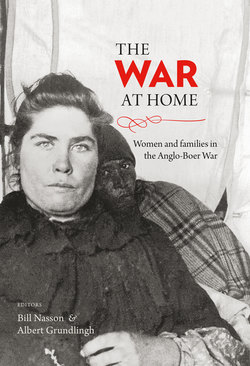Оглавление
Helen Bradford. The War at Home
Foreword
Introduction
When professional soldiers wage war
Surrendered burghers and the first concentration camps
The scorched-earth policy and the camps
Women and children sacrificed for freedom?
Why the scorched-earth policy?
The Havenga report: myths and facts
Impact of scorched earth
Boer men (February to May 1900)
Bittereinder women (February to May 1900)
Creation of a volk ( June to November 1900)
Wanderings in the veld (December 1900 to May 1902)
Mother and mainstay
The Boer woman and the British lord
A woman in the context of her time
Adjusting to camp life
Daily life
The causes of death in the camps
Conflicting practices of medicine
Children at war
Trauma in the camps
Capture the children: Life in the concentration camps
Rebuilding
The servant question
Improvised arrangements
The creation of black camps
Work and other camp obligations
A condition of crisis
Some improvement
Camp life: Optimistic perceptions
Camp life: Critical opinion and resistance
Repatriation problems
Separate spheres or shared fate?
Seriously funny
Helpless laughter?
The laughter of the survivor
The mirth of a nation?
Plans for a monument
Design and construction
The unveiling
The monument after 1913 and the War Museum of the Boer Republics
A monument with patriarchal ulterior motives?
A monument in the name of Afrikaner nationalism?
The move towards nationalism
The Women’s Monument under a new government
End notes
Further reading
Acknowledgements
Photographic acknowledgements
About the book
About the authors
Отрывок из книги
AT HOME
WOMEN AND FAMILIES IN THE ANGLO-BOER WAR
.....
It can be argued that the policy of extensive concentration camps that was developed later can be traced back to these efforts to protect the surrendered burghers. In this way, these burghers contributed to the genesis of the concentration-camp system, albeit indirectly and inadvertently.
There is another link between the camps and the burghers who laid down their arms. Burgher peace committees, consisting of surrendered burghers, were established in co-operation with the British authorities in an attempt to compel those who were still on commando to surrender because the cause was lost. Their efforts were largely fruitless. Several republican leaders and, later, historians, believed that the peace committees actually gave the idea of concentration camps to Horatio Lord Kitchener, Roberts’s successor. It was believed that Meyer de Kock, a burgher from Belfast who acted as peace envoy and later died for this cause, persuaded the British to use this method. However, there is no conclusive evidence to support this, and Kitchener had already given serious consideration to the expansion of the camps even before he met with the burgher peace committees. Nevertheless, it is clear that some surrendered burghers supported the establishment of camps.
.....
